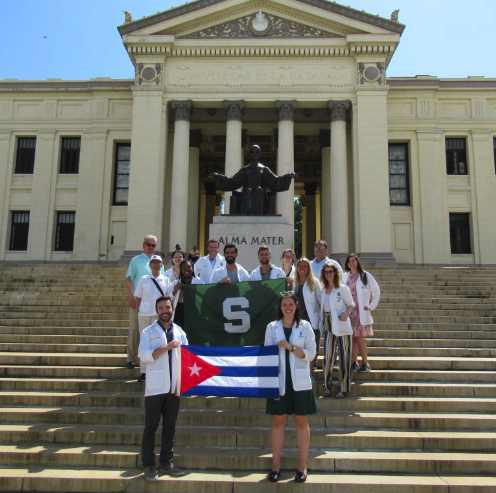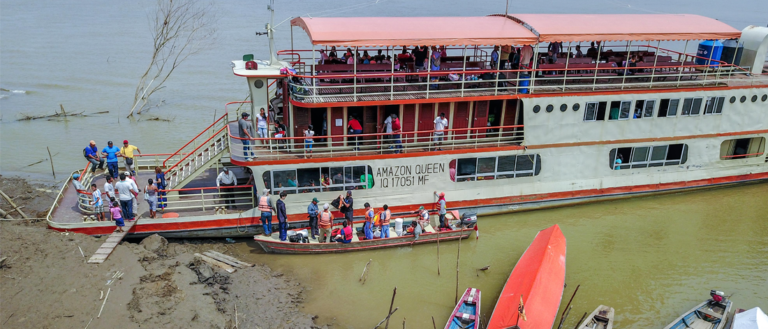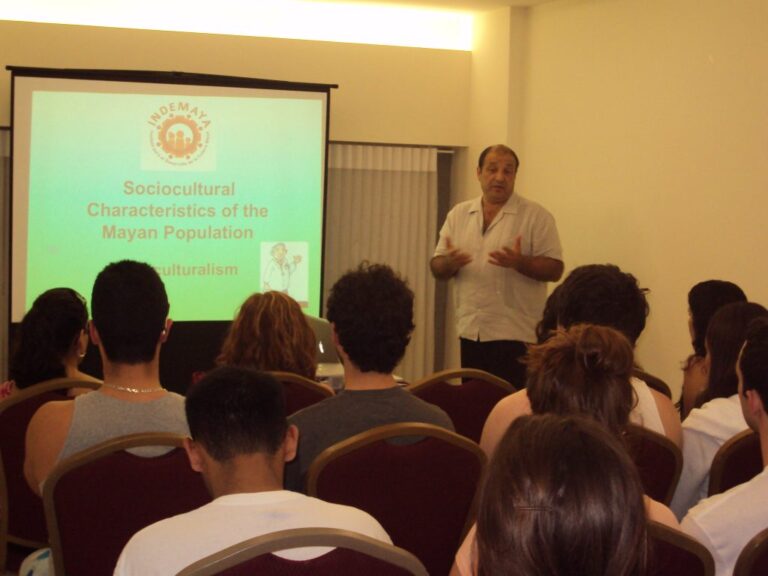On January 12, 2010 a 7.0 earthquake at 4;53 pm a 7.0 Earthquake struck the country of Haiti leaving the nations capital, Port Au Prince, and the surrounding communities in ruins. The aftermath of the natural disaster took over 160,000 lives with over half a million people homeless. William Cunningham DO MHA was on the ground in Port Au Prince three days after the quake. Dr. Cunningham, an emergency medicine physician and currently the Director of the Institute for Global Health and Associate Dean for Global Health at MSU arrived with a team of surgeons and immediately set up a surgical camp at the Epicenter of the quake in Leogane.
This horrific experience led to Dr. Cunningham and other MSUCOM physicians to promise to return to Haiti to assist the Haitians in their recovery. At least once to twice a year Dr. Cunningham and Dr. Gary Willyerd have led medical teams to a small rural village outside of the second largest city in Cap Haitian, in Haiti to deliver care. In 2018, the Institute for Global Health developed a Study Abroad course for the health care colleges at MSU. This will enable students in the four health care colleges at MSU to travel to Haiti with MSU faculty and researchers to deliver care and develop research studies.

Ryan Hodgeman is a third year DO candidate at Michigan State University’s College of Osteopathic Medicine. He is the class of 2021 East Lansing Vice President, former International Osteopathic Medicine Organization President and currently sits on the Trainee Advisory Committee for the Consortium of Universities for Global Health. He is an officer in the United States Army and loves spending time with his wife Courtney and dog Kallie.
In a brief interview with Mr. Hodgeman he shared a few words about his career and passion:
“I pursued Michigan State University’s College of Osteopathic Medicine program because I wanted a career in global health. After enthusiastic support, funding, and opportunity during my first two years as a medical student – it’s clear that the reputation of Michigan State as a leader in Global engagement is well founded.
For the past eight years, William Cunningham DO, MHA, Director of the MSU Institute for Global Health and Associate Dean for Global Health at MSUCOM, with a team of medical students, medical residents, and volunteers, has been working on establishing a community medical clinic in the small town of Limonade, Haiti. The clinic operates in conjunction with a Michigan based non-profit organization, Soaring Unlimited, that has been deeply rooted within Limonade for decades. The clinic has served as an epicenter of community growth and an excellent vessel for medical students to experience a different culture and see diverse pathology.
My work in Limonade, Haiti is focused on redirecting our goals from direct medical aid to building a sustainable partnership using data driven innovation to improve care and wellness for the community. In 2017 we collected epidemiologic data on the patients presenting to the clinic. We found a high incidence of elevated blood pressure readings, gynecological infection, and gastrointestinal and dermatological parasitemia. We took this data to the Haitian community leaders and people involved in health delivery in November 2018. Through two separate focus groups, we had a dialogue on how they wanted to approach barriers to care. A central theme from the participants was the request for agent(s) of the clinic to go out into the community to provide health education and act as a link between people and the clinic. With my team, including family medicine resident and MSUCOM alumni Arpon Shahed, and in conjunction with MSU College of Nursing, we are creating a training program for a Haitian community health agent. I will be returning for the fourth time this November to train the first health agent.
Michigan State University College of Osteopathic Medicine’s Institute for Global Health has given me the tools I need to prepare for the career I want in medicine. I joined a budding global partnership that was ready for a transition to something more, and my situation is not unique. I am surrounded by students and staff pushing to make collaborative improvements to community wellness sustainable in even the poorest communities around the world. As an osteopathic student I was taught from day one that health is a combination of innumerable factors derived from all aspects of a person’s life. Together, with the people of Limonade, we use this principle of holism to find ways to break down the barriers to healthcare. “


